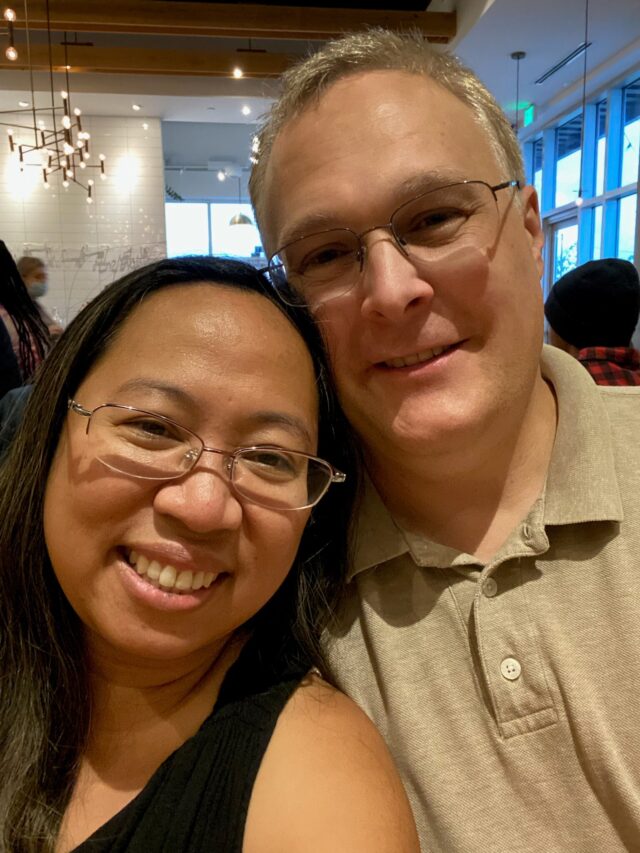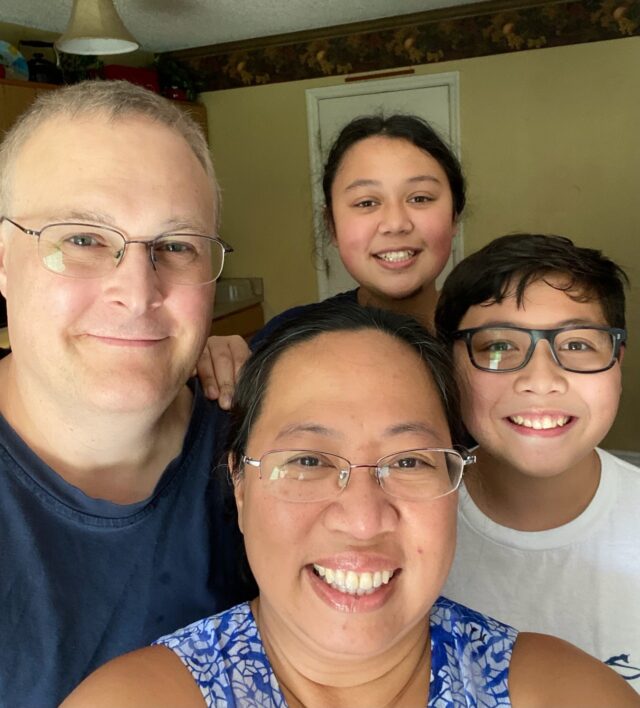Fighting through fatigue

At age 31, Michael Brien started his computer repair business, where he worked long hours, week after week. A decade later, his business was successful, but he began to experience bouts of fatigue. His wife, Maria, thought his weariness was burnout from working too much, as well as poor diet and lack of exercise.
Brien’s fatigue increased dramatically a few months later, and he hardly had enough energy to work at all. Brien made the difficult decision to close his business and focus on his health.
Life after work
Following the decision to close his business, Brien’s fatigue did not go away. It slowly became worse, even when he ate well and exercised. Toward the end of 2019, he experienced another symptom — frequent urination — where he would use the bathroom two to three times a night.
The onset of the COVID-19 pandemic in 2020 did not help. Brien’s symptoms worsened, but it was difficult to see a doctor, as many offices were closed and people were encouraged to stay home.
In December 2020, Brien was able to schedule an appointment with a urology practice. The doctor gave him a physical and checked his prostate, but did not find anything unusual.
A trip to the emergency room
Brien showed a rapid decline in his health months after his initial appointment. Brien was getting out of bed seven or eight times to use the bathroom during the night. He had to put a lot of pressure on his bladder just to drain half a cup of urine. By the next month, only drops were coming out when he used the bathroom. The lower left side of Brien’s back began hurting so badly that his wife took him to the emergency room.
In the emergency room, a catheter was inserted to relieve his bladder of 2,000 cubic centimeters, or 8 1/2 cups, of urine. He received intravenous fluids for dehydration, along with bloodwork. His prostate-specific antigen test, or PSA, was at a level of 337. Normal PSA levels for men in their late 40s like Brien are 0 to 2.5. Thinking this was an error, they gave him another PSA test, and when the level came back the same, Brien was sent to a local hospital for further evaluation. Brien learned he most likely had prostate cancer that had possibly metastasized, spreading to other parts of his body.
Dark times turn brighter
Brien left the hospital in March 2021, discouraged because his follow-up appointment to get a biopsy of his prostate wasn’t for another four weeks. He and his wife turned to a family friend who referred them to K.C. Balaji, MD, a urologic oncologist at UF Health Urology – Jacksonville.
Within a week, Brien was seen for a biopsy and bone scan. He met with Balaji, who discussed his biopsy results and PSA levels in detail. Balaji told Brien that although he had an aggressive cancer that had spread from his prostate to bones in other parts of his body, there were several treatment options available to help people in his situation live longer through proper cancer management.
“I walked into Dr. Balaji’s office a broken man, thinking I only had a couple years to live,” Brien said. “When Dr. Balaji said, ‘Don’t worry, this is what I do. We’ve got this,’ I left his office hopeful and encouraged.”
Balaji started Brien on several medications to manage the symptoms of the disease. Within a short time, Brien’s PSA level went from 337 to 25, prompting a celebration from Balaji’s staff. By August 2021, Brien’s PSA level was 1.4.
Precision medicine to treat prostate cancer
Balaji and his team of urologists treat men with prostate cancer using a strategy called precision medicine. One aspect of this method is a test called next-generation sequencing, which involves testing more than 500 cancer genes to look for any mutations or abnormalities.
They also use an integrated cancer care model, where all treatment is done under one roof.
A better outlook on life
Instead of working long hours again, Brien volunteers daily at a local charity, helps with activities at his church and keeps up with home projects. Brien’s previous issues with nighttime urination are gone. He can also drink as much fluid as he wants without worrying about the constant urge to urinate.
“I can’t say enough good things about Dr. Balaji,” Brien said. “All the staff and doctors in the urology department were absolutely incredible. I really got the sense that everyone cares about what they’re doing.”
Balaji and his team of urologists offer comprehensive urological cancer care. Patients with urological conditions undergo detailed evaluation, after which an individualized treatment plan or surgery is considered.
“We’re grateful to Mr. Brien for sharing his experience, so that we are able to help other patients who may be in a similar situation,” Balaji said. “We are committed to meeting the patient’s needs in one of the most difficult times in their lives, and to doing the best we can to be with them all the way.”
About the author


